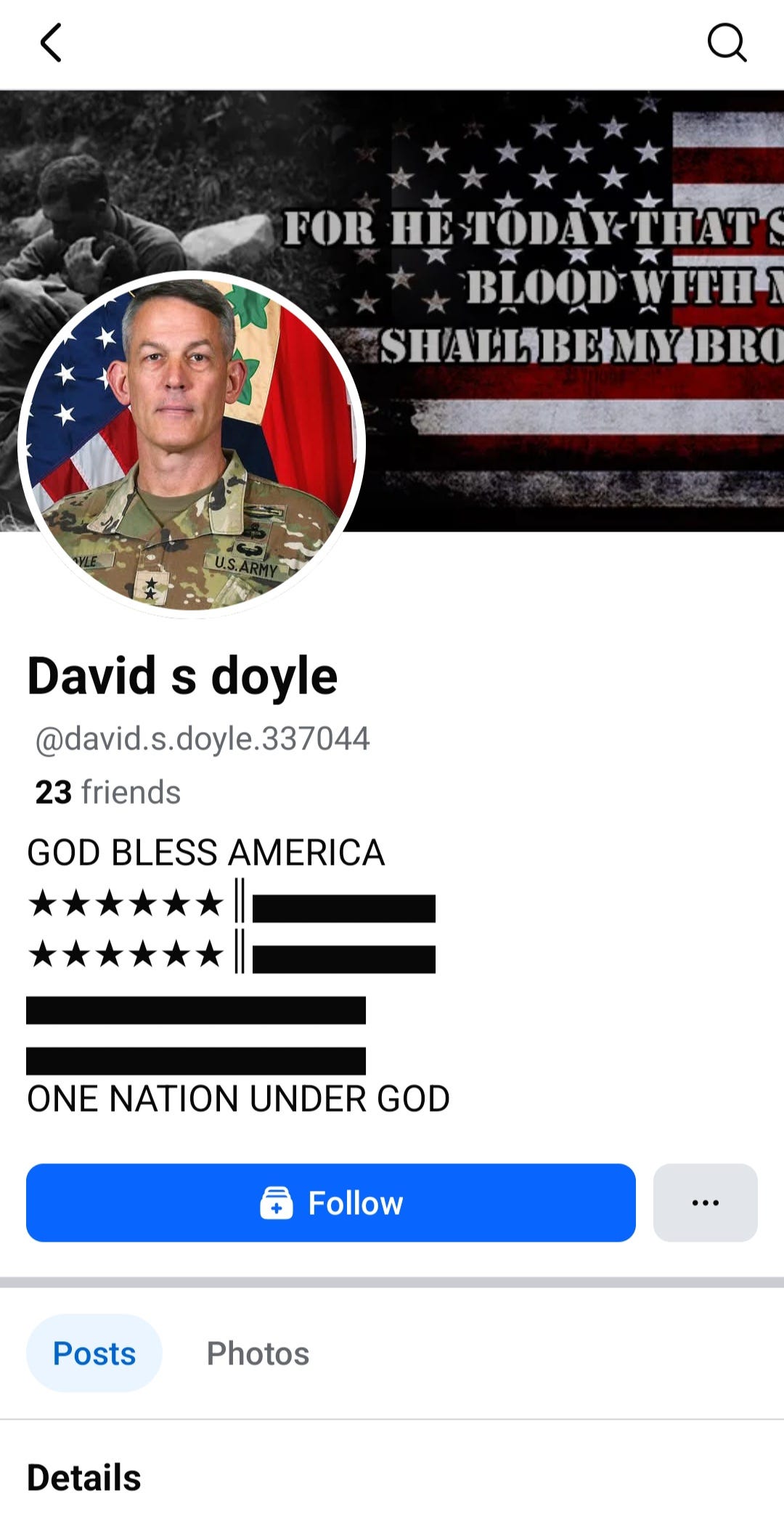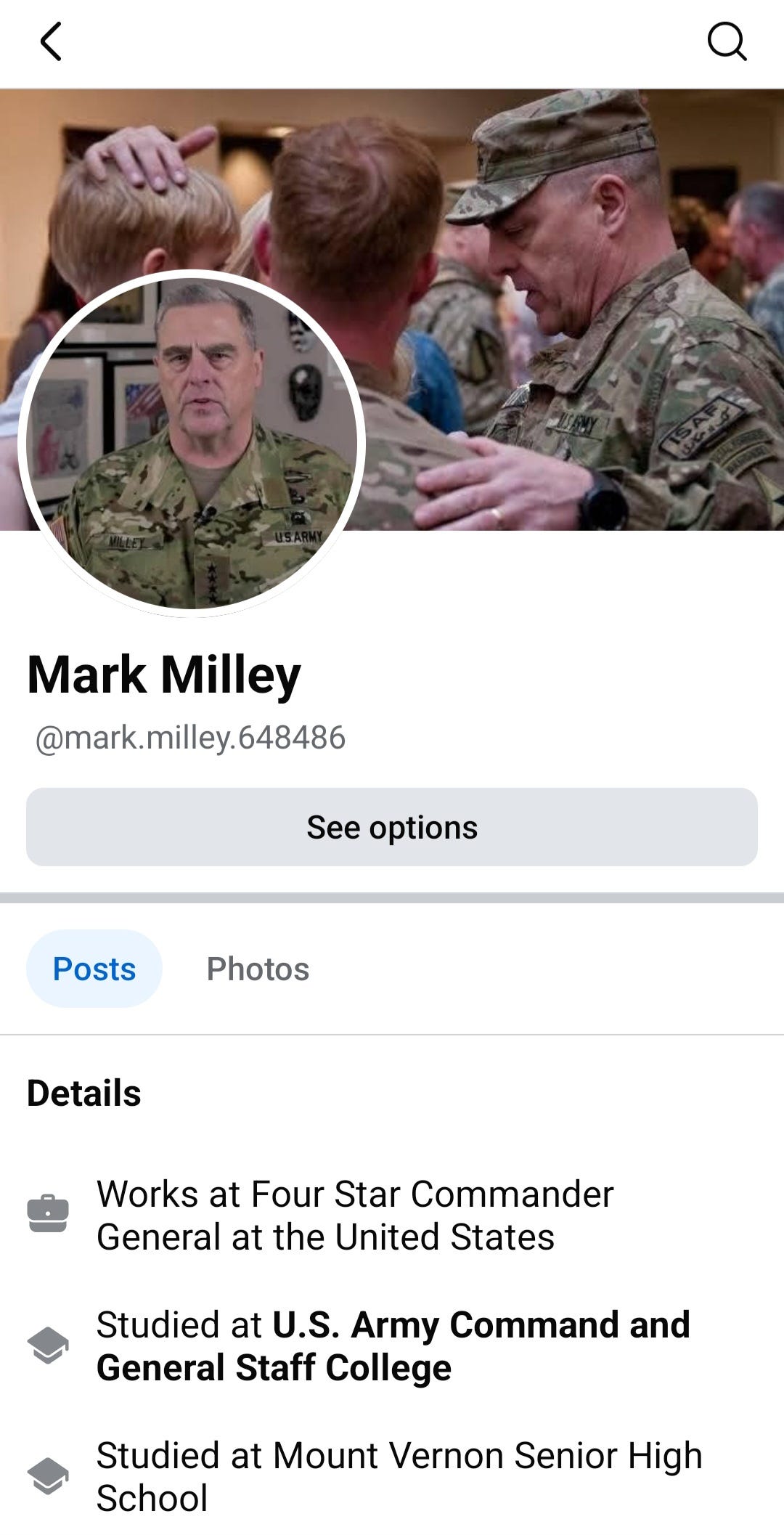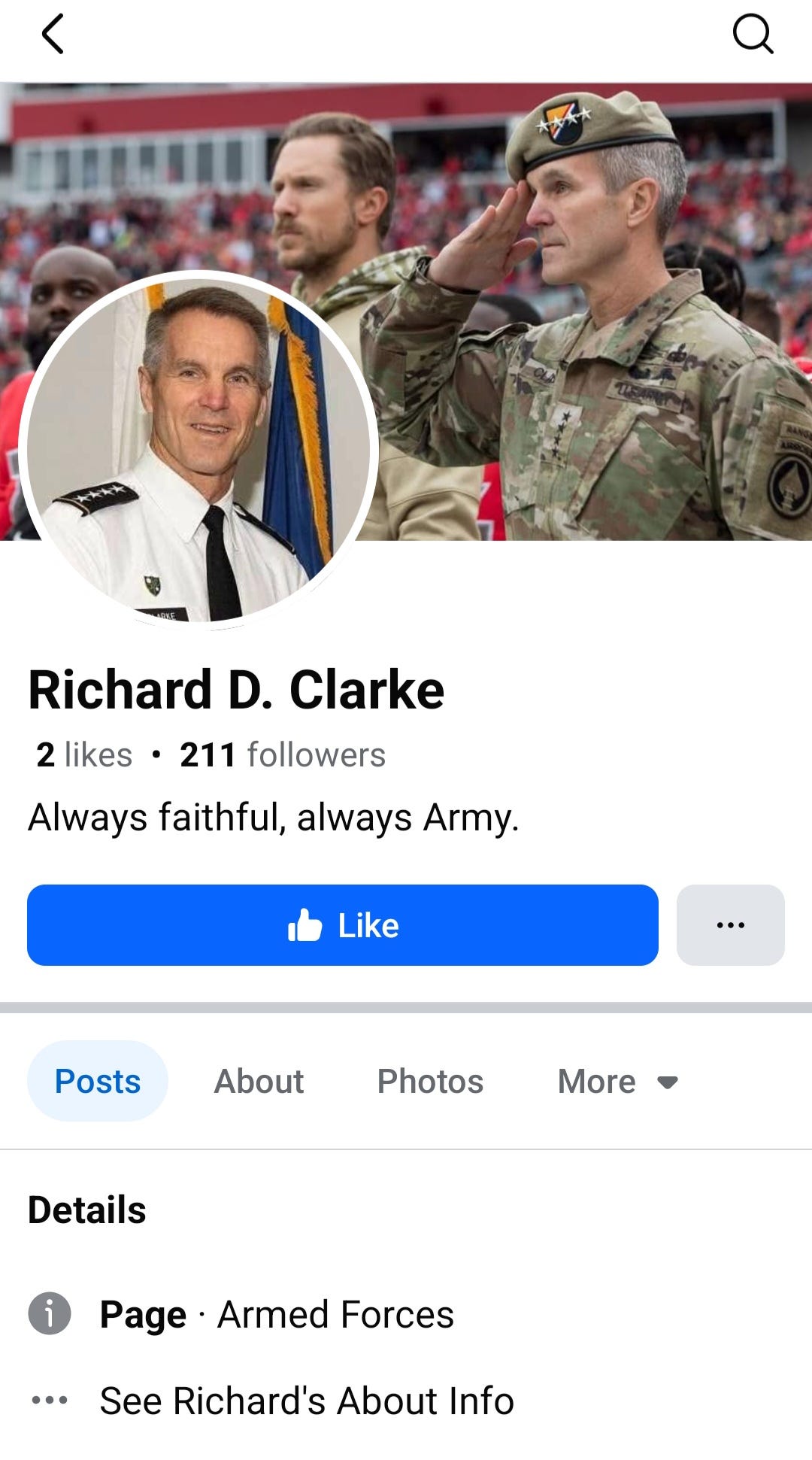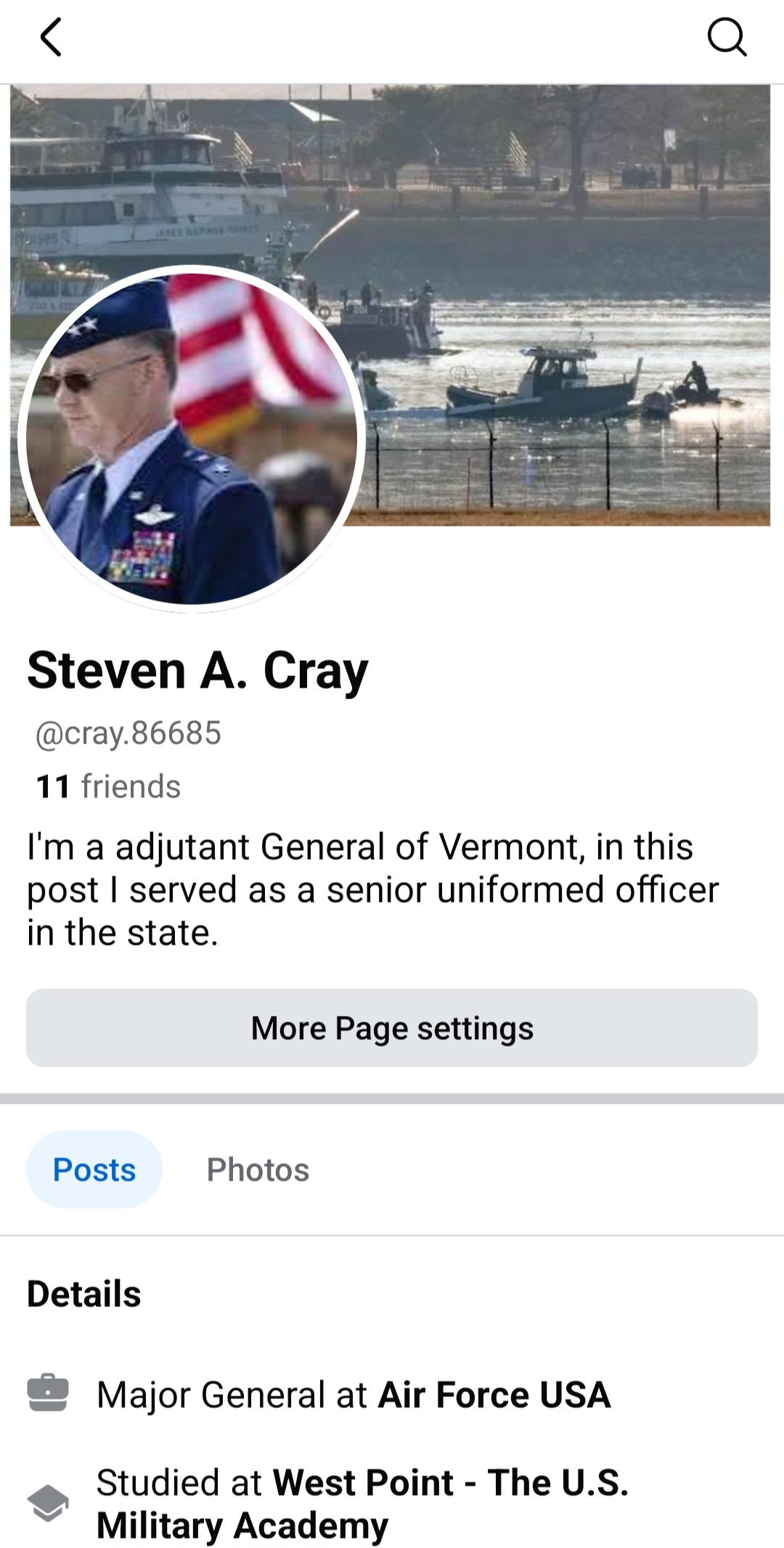Don’t worry. No one’s in danger.
It’s not like these seven fake military figures posing on Facebook could ever be used to scam someone, defraud a family, or undermine national security.
And it’s not like Facebook — sorry, Meta — has the resources to stop it. It’s just a trillion-dollar company with some of the most powerful AI on the planet. What could they possibly do?
Let’s take a guided tour through the U.S. Military’s most elite online unit: the Fabricated Facebook Command Corps — where nothing is real, and everything is monetized.
“Andrew Goddard” — Commander of the One-Friend Army
Representing U.S. Army Pacific, allegedly. With exactly one friend, he’s clearly a top-tier operative in the “lonely-and-available” division. Facebook glanced at this barren, obviously fake profile and whispered, “Promote him.”
“GEN.STEPHENJ.TOWNSEND2.MIL” — Now with Space Force and living in South Korea
A retired four-star general, but now he’s apparently stationed in Seoul, casually working with the United States Space Force, and rocking a username that looks like it was generated during a Wi-Fi outage.
Facebook looked it over, nodded solemnly, and said: “Seems legit.”
“David S. Doyle” — Commander of CAPS LOCK OPERATIONS
DAVID. S. DOYLE. IS. READY. TO. SERVE.
Serve what, exactly, remains unclear. Probably fraudulent DMs and malware links. He’s got 23 friends and more American flags than an election-year truck rally. Just the kind of guy Facebook likes to leave untouched because, you know, patriotism.
“Michael Scaparrotti” — Supreme Commander of Sketchy Handles
The real General Scaparrotti once led NATO. This version? He’s rocking the elegant and totally normal username michael.scaparrotti.709029. No verification, no context, no problem. Just a fake profile that says: “Trust me, I’m important.”
“Mark Milley” — Chairman of the Board (of Catfishing)
Former Chairman of the Joint Chiefs, now reduced to an unverified Facebook profile with no bio, a blurry banner, and fewer friends than your dog’s birthday page.
Facebook: “Looks good. Let him scam in peace.”
“Richard D. Clarke” — Special Ops, Social Media Edition
Fake version of a recently retired U.S. Special Operations Commander. Two likes. 211 followers. A profile photo that screams “compiled in Microsoft Paint.”
And Facebook? Approved. Promoted. Left to rot like the rest.
“Steven A. Cray” — The Adjutant of Grammatical Errors
“I’m a adjutant General of Vermont,” his bio reads, proudly punching grammar in the face.
This guy’s rocking 11 friends, a stolen headshot, and a syntax you’d expect from a chatbot trained exclusively on bumper stickers. Facebook gave him a green light and a virtual salute.
BUT DON’T WORRY. NO HARM COULD POSSIBLY COME FROM THIS.
It’s not like:
-
Fake generals are used in romance scams that bilk people out of their savings
-
Impersonators request fake donations “for the troops”
-
Scammers steal personal info and distribute malware through these accounts
-
Foreign operatives weaponize impersonation to spread disinfo during election cycles
Oh wait. They do. And Facebook lets them.
THE DATA GOLDMINE
And just in case you’re wondering how these scammers are so convincing: they’re not guessing.
They’re using real stolen data.
-
OPM breach (2015): 21.5 million government background checks stolen — including SSNs, fingerprints, psychological histories, and clearance levels.
-
Equifax breach (2017): 143 million Americans exposed, including military personnel.
-
DOD (2021): Over 1,800 breaches of military personnel data in one year.
-
Data brokers (2023): Selling personal info of U.S. service members for 12 cents a record.
So yes — fake generals on Facebook are pulling from a menu of compromised identities. And Facebook is serving up the platform to weaponize them.
AND WHAT HAS FACEBOOK DONE TO STOP IT?
Let’s take a look:
That’s right — absolutely nothing effective.
No ID verification for high-ranking officials.
No AI filters for duplicate impersonations.
No consequences for hosting scams involving real military personnel.
No accountability, no oversight, no shame.
But hey, your Ray-Ban Smart Glasses now support Instagram Stories.
FINAL THOUGHT: FACEBOOK ISN’T JUST ASLEEP AT THE WHEEL — IT’S PROFITING FROM THE CRASH.
This isn’t an accident. It’s how the system is designed.
Every like, every friend request, every stolen valor click — it’s engagement. And on Facebook, engagement is God.
People are being scammed. Soldiers are being impersonated.
And the person at the top of this flaming heap of disinformation and digital negligence?
Mark Zuckerberg.
The guy who built a platform to connect the world — and now can’t be bothered to disconnect a fake general begging for iTunes cards.
Mark, buddy. Clean up your damn platform.
Or at least admit the truth:
You know exactly what it’s being used for.
And you’ve decided you don’t care.
This post has been syndicated from Closer to the Edge, where it was published under this address.







